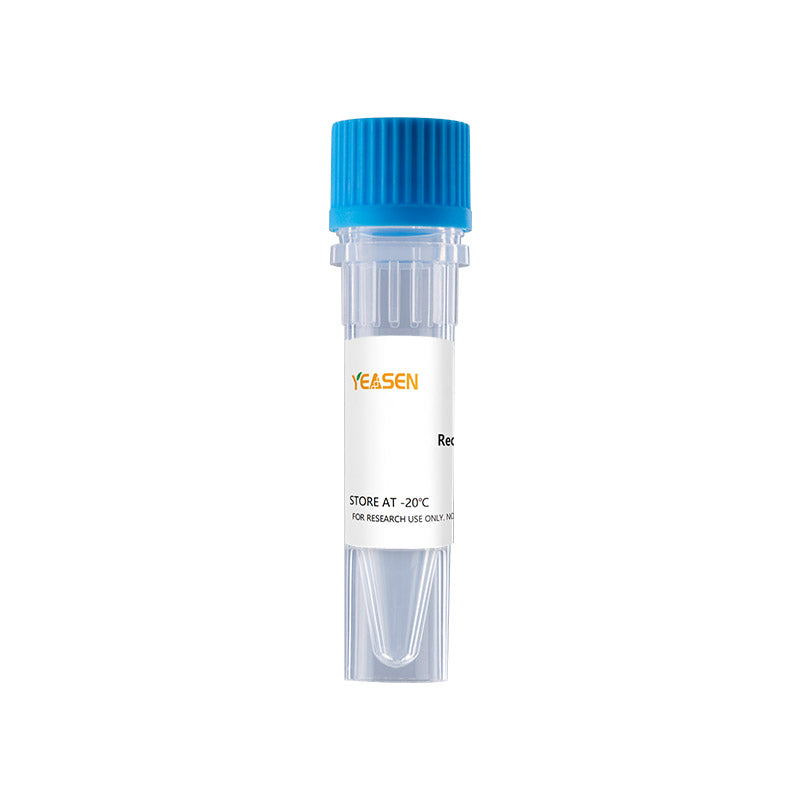Description
Interleukin-8 (IL-8) is encoded by the IL8 gene and produced by macrophages and other cell types such as epithelial cells. It is also synthesized by endothelial cells, which store IL-8 in their storage vesicles. There are many receptors capable to bind IL-8, the most affinity to IL-8 are receptors CXCR1, and CXCR2. As a member of the CXC chemokine family, function of IL-8 is the induction of chemotaxis in its target cells, like neutrophil granulocytes, basophils, and T-cells. IL-8 (77a.a.) has a 5-10 fold higher activity on neutrophil activation, compared to IL-8 (77a.a.). IL-8 is often associated with inflammation, it has been cited as a proinflammatory mediator in gingivitis and psoriasis.
Product Properties
|
Synonyms |
CXCL 8, Emoctakin, GCP-1, MDNCF, MONAP, NAP-1, Protein 3-10C, T-cell chemotactic factor |
|
Accession |
|
|
GeneID |
|
|
Source |
E.coli-derived human IL-8 protein, Ala23-Ser99. |
|
Molecular Weight |
Approximately 8.9 kDa. |
|
AA Sequence |
AVLPRSAKEL RCQCIKTYSK PFHPKFIKEL RVIESGPHCA NTEIIVKLSD GRELCLDPKE NWVQRVVEKF LKRAENS |
|
Tag |
None |
|
Physical Appearance |
Sterile Filtered White lyophilized (freeze-dried) powder. |
|
Purity |
> 96% by SDS-PAGE and HPLC analyses. |
|
Biological Activity |
Fully biologically active when compared to standard. The ED50 as determined by a chemotaxis bioassay using human CXCR2 transfected mouse BaF3 cells is less than 2 ng/ml, corresponding to a specific activity of > 5.0 × 105 IU/mg. |
|
Endotoxin |
< 1.0 EU per 1μg of the protein by the LAL method. |
|
Formulation |
Lyophilized from a 0.2 μm filtered concentrated solution in PBS, pH 7.4. |
|
Reconstitution |
We recommend that this vial be briefly centrifuged prior to opening to bring the contents to the bottom. Reconstitute in sterile distilled water or aqueous buffer containing 0.1% BSA to a concentration of 0.1-1.0 mg/mL. Stock solutions should be apportioned into working aliquots and stored at ≤ -20°C. Further dilutions should be made in appropriate buffered solutions. |
Shipping and Storage
The products are shipped with ice pack and can be stored at -20℃ to -80℃ for 1 year.
Recommend to aliquot the protein into smaller quantities when first used and avoid repeated freeze-thaw cycles.
Cautions
1. Avoid repeated freeze-thaw cycles.
2. For your safety and health, please wear lab coats and disposable gloves for operation.
3. For research use only.
Payment & Security
Your payment information is processed securely. We do not store credit card details nor have access to your credit card information.
Inquiry
You may also like
FAQ
The product is for research purposes only and is not intended for therapeutic or diagnostic use in humans or animals. Products and content are protected by patents, trademarks, and copyrights owned by Yeasen Biotechnology. Trademark symbols indicate the country of origin, not necessarily registration in all regions.
Certain applications may require additional third-party intellectual property rights.
Yeasen is dedicated to ethical science, believing our research should address critical questions while ensuring safety and ethical standards.

